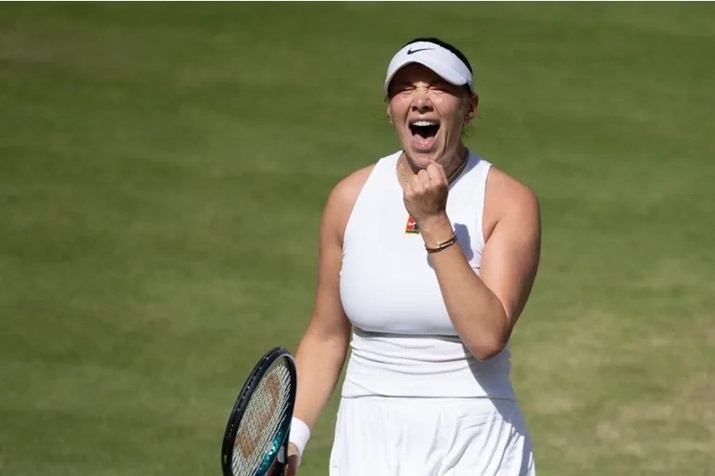Amanda Anisimova delivered a stunning performance, overcoming World No. 1 Aryna Sabalenka with a score of 6–4, 4–6, and 6–4 in a thrilling Wimbledon semifinal that was a remarkable showcase of both resilience and skill. As both athletes unleashed their formidable shots, it was Anisimova’s composure, impeccable timing, and emotional depth that propelled her to her first Grand Slam final.
Watching from Centre Court, I experienced the match not only as a tennis writer but also through the lens of a coach and a former junior player, someone who has dedicated their life to this amazing sport. For me, this match echoed far beyond mere rankings or statistics.
My first encounter with Amanda was back in 2017, during her junior play at the US Open. Even then, her game radiated a unique brilliance—she struck the ball with a stunning purity, seized opportunities with agility, and moved with effortless elegance. I could see her potential instantly, thinking, “This girl is destined for greatness.” What I couldn’t have foreseen, however, was how closely her path would mirror my own journey.

[Tim Clayton/Getty Images]
Tragedy struck when Amanda’s father, Konstantin, passed away suddenly in 2019. He was not just a father but also her coach. I experienced similar grief when I lost my own father at 25, shortly after moving to New York for a master’s degree in creative writing. That kind of loss molds your existence; it lingers and shapes how you navigate through life. Witnessing Amanda today, unwavering under pressure and confronting one of the fiercest competitors in the sport, was a powerful moment—she wasn’t just winning a match; she was embodying a shared experience of resilience.
“The match was such a challenge, like a roller coaster ride,” she reflected afterward.
“I realized that I couldn’t rely on her mistakes to win. I had to bring my best game, especially in terms of aggression.”
This semifinal was a clash between two of the foremost power hitters in women’s tennis. While Sabalenka, a three-time major winner, showcased her explosive style, Anisimova countered with outstanding technique and serene composure. She played the ball early, controlled the exchanges from the baseline, and executed her stunning backhand—often hailed as one of the most aesthetically pleasing in tennis—with impressive results.
“In the third set, I knew I had to really go for it,” Anisimova stated. “Her level just kept escalating throughout the match.”
Just six weeks ago in Paris, Sabalenka had defeated Anisimova in straight sets. Yet, grass presented a different game, and Anisimova arrived at Wimbledon with a career-high of 11 wins on grass and a confident head-to-head record of 5–3 against the top seed.
Others had posed challenges to Sabalenka during this tournament, but none tested her like Anisimova did. For a compelling two hours and 37 minutes, Amanda not only matched every shot but also tapped into something deeper: a sense of vindication, resilience, and a moment of arrival.
In the Royal Box sat my childhood hero, Björn Borg. As a young player, I idolized him from afar. Today, it was Anisimova embodying a Borg-like calmness—unfazed, poised, and extraordinary during critical moments.
A year ago, she struggled even to qualify for this event. Now she stands on the brink of a Grand Slam final. “Returning to the top has such significant meaning for me,” she expressed. “I told myself to compete fiercely and enjoy every minute on the court.”
For the tennis community, this is a tale of resurgence and talent realized. For those like us who have endured losses that break you, it resonates on an entirely different level.
“After my break, many warned me that it would be impossible to return to the top after being away for so long,” she shared. “It was tough to hear because I still aspired to achieve great things and win a Grand Slam someday.
“Proving that one can make it back to the peak by prioritizing oneself was incredibly meaningful for me.”
It’s about persevering when hope seems lost and discovering the beauty that awaits on the other side.




